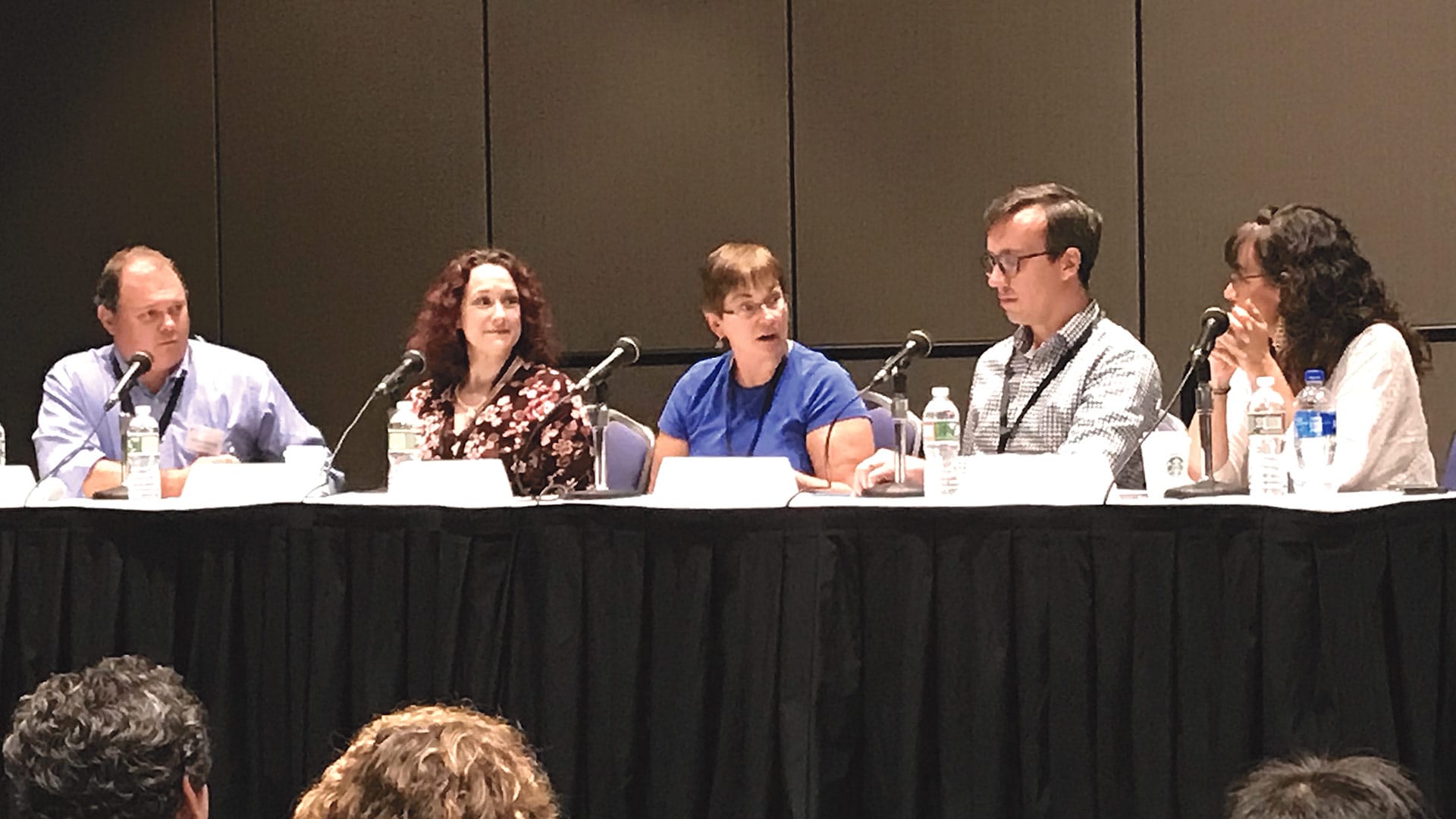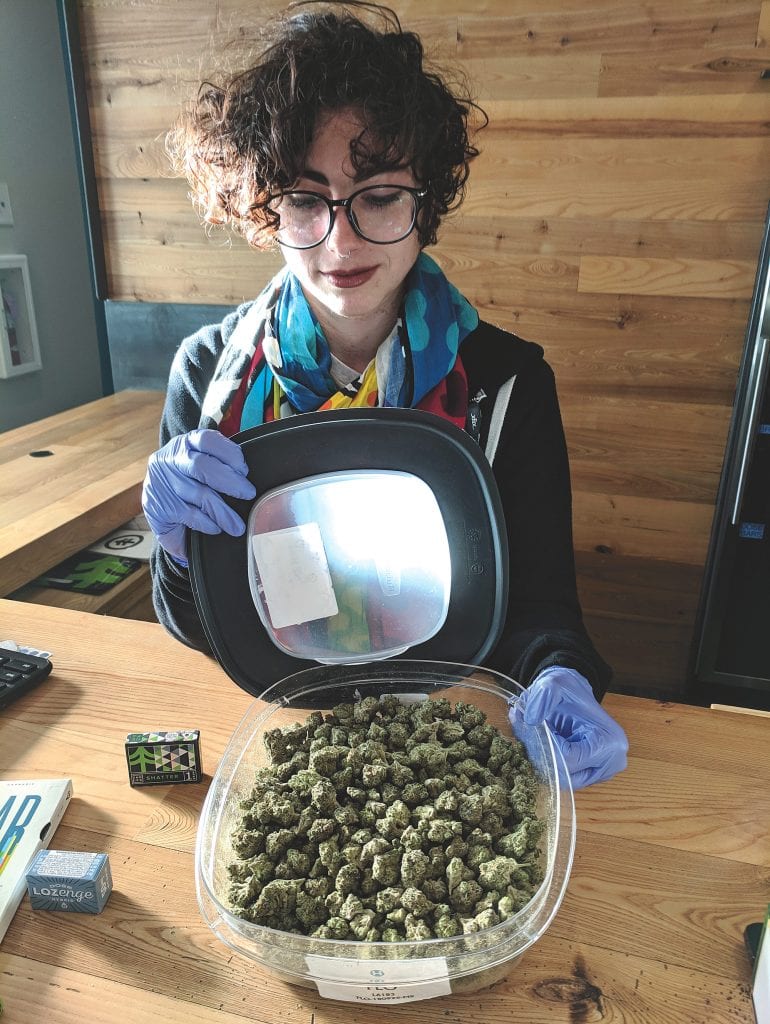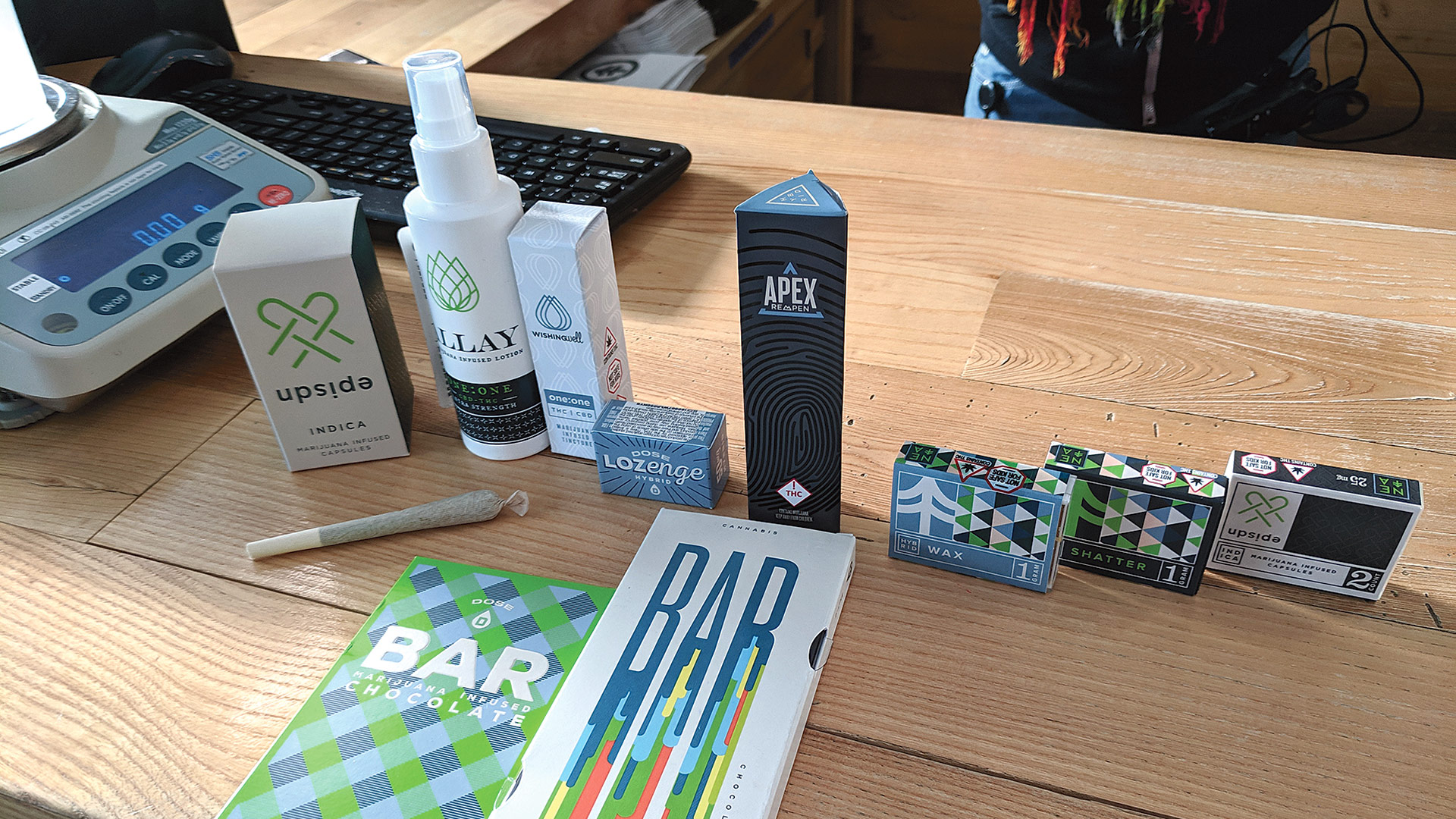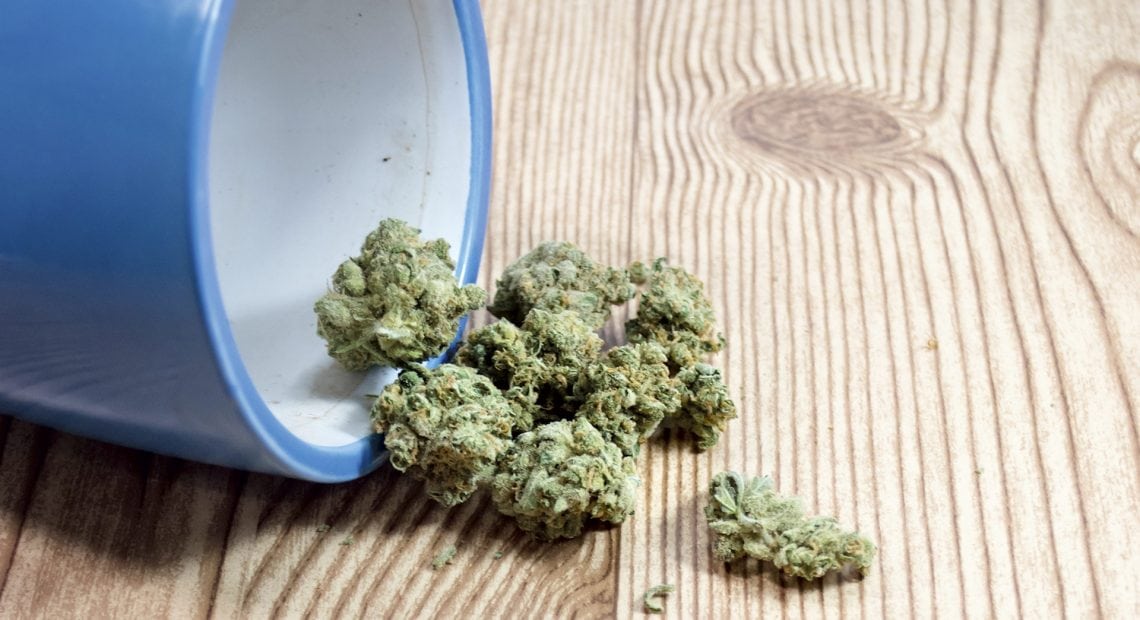Hazy Picture
 Just as the business and legal communities in Massachusetts were learning to deal with medical marijuana, voters kicked the door wide open in 2016 by legalizing the drug for recreational use, too. That created a tangle of issues to work out, from how to handle employees that use the drug outside work to launching a cannabis business in the face of federal law that calls the practice illegal. Some of those issues have been sorted out, but others still hang in the air, like so much smoke.
Just as the business and legal communities in Massachusetts were learning to deal with medical marijuana, voters kicked the door wide open in 2016 by legalizing the drug for recreational use, too. That created a tangle of issues to work out, from how to handle employees that use the drug outside work to launching a cannabis business in the face of federal law that calls the practice illegal. Some of those issues have been sorted out, but others still hang in the air, like so much smoke.
When it comes to the relationship between employers and medical marijuana, few names are as important as Cristina Barbuto.
She’s the woman who filed suit against her employer, Advantage Sales and Marketing, three years ago after being fired — after her first day on the job — for using marijuana outside of work. She was required to take a drug test, and told the employer before the test that she would fail, because she used marijuana at home to help manage her Crohn’s disease.
A supervisor said that wouldn’t be a problem, but Barbuto was dismissed from the job the next day when the drug test came back positive for marijuana. The reason? While medical marijuana was legal in Massachusetts at the time, it was still illegal under federal law.
Her complaint eventually made its way to the state Supreme Judicial Court, which affirmed her right to use medical marijuana outside work on the grounds that forbidding her — as long as she wasn’t impaired on the job — constituted disability discrimination.
“If somebody qualifies as a disabled person and they’re seeking an accommodation, the employer has an obligation to engage in a process with that person and provide a reasonable accommodation that allows them to do their job, unless they can show the accommodation would cause them an undue hardship,” said Pat Rapinchuk, a partner with Robinson Donovan in Springfield. She noted that a subsequent suit by a man denied access to a homeless shelter for his medical-marijuana use came down on the plaintiff’s side as well, on the same grounds as the Barbuto suit.
“But then comes the recreational piece,” she said. “And that’s completely different.”
Indeed, with recreational use of marijuana having been legal in Massachusetts for a much shorter time, case law has not established similar rights for such users, she noted.
“Right now, I would say the recreational marijuana user does not have the protections a medical user does,” Rapinchuk said. “You start with just the basic premise of no substances in the workplace — no alcohol, no drugs. That part’s easy. But what if I used it last week on my own time and my employer drug tests for whatever reason, and I test positive, and I don’t have a medical reason for it? Can the employer either decline to hire me or even terminate me? And I think the short answer right now is ‘yes.’”
In one case that has garnered some media attention, Bernadette Coughlin, a food service supervisor for Sodexo, was fired after being injured in a fall at work. The company required a drug test following an injury, and she tested positive for marijuana, which she admitted she used recreationally at home a few days before. She was fired, and is fighting the termination in court — but might have an uphill battle, Rapinchuk said, because she doesn’t have the disability claim that Barbuto did.

From left, Bulkley Richardson attorneys Scott Foster, Sarah Willey, Mary Jo Kennedy, Ryan Barry, and Kathy Bernardo take part in a recent cannabis panel.
“You’d have to find another route to challenge that,” she added, noting that one possibility is challenging the drug test itself as an invasion of privacy. “Some courts have found such a test to be invasive, and a violation of an employee’s privacy. If they found out otherwise, like through social media, that might pass muster.”
If all this sounds amorphous, it is, Rapinchuk said, and is a field of employment law that is definitely evolving. Drug tests can detect THC, the psychoactive agent in marijuana, for days, even weeks after someone smokes or ingests it, and no tests exist to gauge whether the user is currently impaired. That leaves employers with plenty of hard questions about how they want to handle this new frontier.
Growing Concerns
But that’s not the only area of the law currently evolving in the face of legalized marijuana.
Perhaps the most significant wrinkle in marijuana law, Scott Foster says, is that it’s legal in the state but illegal federally. That drives many of the odd situations people find themselves in when they start a marijuana business, and it’s why Bulkley Richardson, where Foster works as a partner, recently launched a dedicated cannabis practice.
As one example, a marijuana business cannot use most banks.
“It’s considered to be money laundering on a federal level to run marijuana money through the banking system,” he explained. “You can’t use an ATM, you can’t use a credit card, and you can’t take the proceeds from the sale of marijuana and deposit it at a bank if they know it’s marijuana funds.”
There are two exceptions: Centurion Bank and Gardner Federal Credit Union. “We literally have marijuana clients driving $50,000 to $100,000 in cash to Boston in armored cars to deposit it at [Centurion],” Foster said, adding that the bank’s fees for the service are astronomical. “The bank is basically taking a business risk. I don’t know if it’s a good risk or bad risk, but no other big banks are taking the chance because the penalties would be devastating to them. Centurion is willing to take the chance.”
Meanwhile, people buying real estate as part of a new business typically finance 60% to 80% of the cost, he noted, but banks can’t lend for this purpose any more than they can take deposits.
“So what you end up with is a lot of very wealthy people playing in this space because you can’t finance it. You’ve got millions and millions of dollars being poured into these ventures that are growing, and nobody hears about it because it’s all private financing. That’s another area where it looks like a normal business until you ask, ‘where’s the money coming from?’”
Then there’s intellectual-property law. Most new businesses federally register their trademarks, but that’s not available for any branding involving marijuana products. “You can come up with this great brand name, this great logo, and you can’t protect it federally,” Foster said. “So now we’re going back to the state system, which does exist in Massachusetts. There is a way to protect trademarks at the state level that, until the marijuana business, nobody had done for 100 years.”
As he and Kathy Bernardo, another Bulkley partner on the cannabis team, spoke with BusinessWest, it became clear why the new practice group includes lawyers that specialize in myriad disciplines.
The disconnect between state and federal law shows up in taxation as well. Foster brought up a quirky section of the tax code that came about after the IRS went after a cocaine dealer in the Midwest for tax evasion, so the dealer filed a tax return that wrote off expenses like security and armored cars. The IRS balked, but a tax court sided with the man.

Pat Rapinchuk says some employers might avoid drug testing for marijuana as not to rule out some strong potential employees.
“Congress later added section 280E to the tax code, which essentially says if your business is in the growing, manufacture, or distribution of a federally controlled substance, you’re not allowed to take normal business deductions,” Foster explained, and then broke down an example of how that may affect a cannabis-related enterprise.
Say a business makes $100,000 and, after spending $40,000 on product, $20,000 on employees, and $10,000 on rent, claims a profit of $30,000. The owner then pays taxes on that figure; if he owes, say, 40%, he makes a profit of $18,000. But if he’s not allowed to write off expenses, suddenly he’s paying 40% on a much larger chunk of that $100,000 — and taking home much less in profit.
“The effective tax rate is two to three times the size of a normal business. And even though it’s against the law federally, you still have to pay taxes,” Foster noted. “It’s another trap for the unwary.”
Joint Enterprises
From a real-estate point a view, issues like zoning laws, special permitting laws, and host-agreement laws also come into play, Bernardo said.
“Municipalities have held the cards because they have to either accept a marijuana zoning district, or they have the ability to shelve it until we actually get the regulations out for recreational use, but that’s coming to an end, so now they have to decide whether or not they’re going to allow this in town or not.”
That depends largely on how the vote went in that particular community when the ballot question legalizing recreational pot in Massachusetts passed last November. In many Western Mass. communities where the vote was in favor, town officials have been busy putting together zoning bylaws for a marijuana district.

Kathy Bernardo
“Municipalities have held the cards because they have to either accept a marijuana zoning district, or they have the ability to shelve it until we actually get the regulations out for recreational use, but that’s coming to an end, so now they have to decide whether or not they’re going to allow this in town or not.”
“The people of town agreed that’s going to be there, and they’ve discussed how and where,” she explained. “A lot of towns put a moratorium on it — which was fine, they were allowed to do that, but they were only allowed to do it for a year, and now they have to come to a determination whether or not they’re actually going to have that zoning district in their municipality. But that is all steered by what the vote was in their town.”
If the town’s voters favored legalizing recreational marijuana, Foster added, it puts them in a different approval process locally than if voters were against it as a group.
“If they were against it, the city council or select board has no authority unless and until they do another ballot initiative, another referendum at the town level, to approve it,” he explained. “I don’t think anybody’s really looking, from a business point of view, to go into those towns. It’s just too much of a hurdle.”
Once permitting and zoning procedures are established, business owners have to work with the town on compliance issues, Bernardo said, “and there are a lot of intricacies that you don’t usually have with a lot of other businesses. With this, it’s completely different.”
Bulkley Richardson’s cannabis group has represented outfits ranging from farmers looking to cultivate the plant to people looking to profit on the retail end, she noted, and the cultivation aspect is one that has flown under the radar, yet is important to this region.
“A lot of the things you see in the news are about the pot shops,” Foster said. “What’s not getting picked up as much is the fact that, in order to sell something, you have to first grow it, and it’s a lot cheaper to grow things in Western Mass. than it is in Eastern Mass., in terms of the cost of the land.”
The next step is the extraction and production process, he went on, and that’s an entirely different type of business with its own nuances. “It’s not just selling the leaves, it’s extracting the THC and then putting it in something — oil, an edible, a cream, or something else. Then those products are sold. So you’ve got farming, you’ve got manufacturing, and you’ve got retail. And the farming and the manufacturing are actually happening more around here.”
Foster said his firm launched the cannabis practice because the attorneys were already working with clients in the area on these various enterprises.
“We tell people, ‘here are the ways that a marijuana business is 90% exactly like any other business, and here is the 10% where it’s just wacky different, and these are the things you have to think about.’ But it’s still real estate. It’s raising money. It’s hiring people. It’s all the regular laws which you otherwise have to comply with.”
What is certain, Bernardo added, is that marijuana is now a fast-growing (no pun intended) part of the Massachusetts landscape, and that’s not going to change any time soon.
“It’s here,” she said, “and we have to learn how to deal with it rationally, because people are getting into these businesses, and there are so many balls up in the air when they get a business running.”
Smoke Signals
But while those cannabis-related businesses continue to pop up, employers at … well, pretty much every other type of company must grapple with their employees’ use of the drug outside the workplace.
“There are no tests to determine if someone is impaired by marijuana. There’s no sanctioned way to measure the amount of THC in someone’s system,” Foster said, adding that one reason is that federal grants — here’s that separation of state and federal law again — are not available to research these tests.
“You have a whole system that works on the alcohol side that makes sense — the tests are developed, and the laws are passed that go to those tests,” he said. “None of that exists yet on the marijuana side. The research is happening, but it’s happening with private money, which means it’s subject to more influence and bias.”
Bernardo said a lot of companies that used to test for marijuana are deciding not to do so going forward, due to the uncertainty. “They’ve just eliminated it completely, unless you’re a driver or it’s a safety issue. They don’t even want to deal with it.”
That makes sense in a job market with historically low unemployment, Rapinchuk said, when aggressively testing for THC might make it tougher to compete for talent.
“Employers are trying to hire a good workforce, and they’re going to be ruling out an awful lot of potential employees if they’re going to take that position, so it is possible some employers will decide not to test for that,” she told BusinessWest.
No matter what their stance, she added, it’s probably wise for employers to review their drug-testing policy to make sure it’s clear and consistent, and doesn’t need to be modified in light of the change in the law.
Medical marijuana remains an easier field to navigate than recreational use, she stressed, citing as a recent example a young man who had a medical marijuana card and applied for a position at a local company.
“They told him, ‘we drug test everybody, not just health or safety positions,’ and he disclosed his use to the employer through the testing agency and brought his card. Sure enough, he tested positive, and there was questioning — how often he used it, who’s his doctor, what’s the prescription — but once all those questions were answered, they hired him. So they followed the advice of the Barbuto court in that case.”
Whether dealing with marijuana use by employees or actually launching a cannabis business, Foster said, this is definitely new territory for lawyers, thanks to that gaping disconnect between state and federal law.
“As a licensed group, one of our rules is that can’t help your clients commit a crime,” he said. While the Massachusetts Ethics Commission passed a ruling that allows lawyers in the Bay State to engage in such activity because it’s permitted on a state level, he added, “you still have to tell clients they’re engaging in something that is illegal at a federal level. The nuances are deep and subtle.”
“And can cause a lot of trouble,” Bernardo quickly added.
Joseph Bednar can be reached at [email protected]













 Just as the business and legal communities in Massachusetts were learning to deal with medical marijuana, voters kicked the door wide open in 2016 by legalizing the drug for recreational use, too. That created a tangle of issues to work out, from how to handle employees that use the drug outside work to launching a cannabis business in the face of federal law that calls the practice illegal. Some of those issues have been sorted out, but others still hang in the air, like so much smoke.
Just as the business and legal communities in Massachusetts were learning to deal with medical marijuana, voters kicked the door wide open in 2016 by legalizing the drug for recreational use, too. That created a tangle of issues to work out, from how to handle employees that use the drug outside work to launching a cannabis business in the face of federal law that calls the practice illegal. Some of those issues have been sorted out, but others still hang in the air, like so much smoke.



 It took almost two years, but Massachusetts regulators have finally started to issue licenses to businesses looking to grow, manufacture, distribute, and sell recreational marijuana products in the Commonwealth.
It took almost two years, but Massachusetts regulators have finally started to issue licenses to businesses looking to grow, manufacture, distribute, and sell recreational marijuana products in the Commonwealth.


